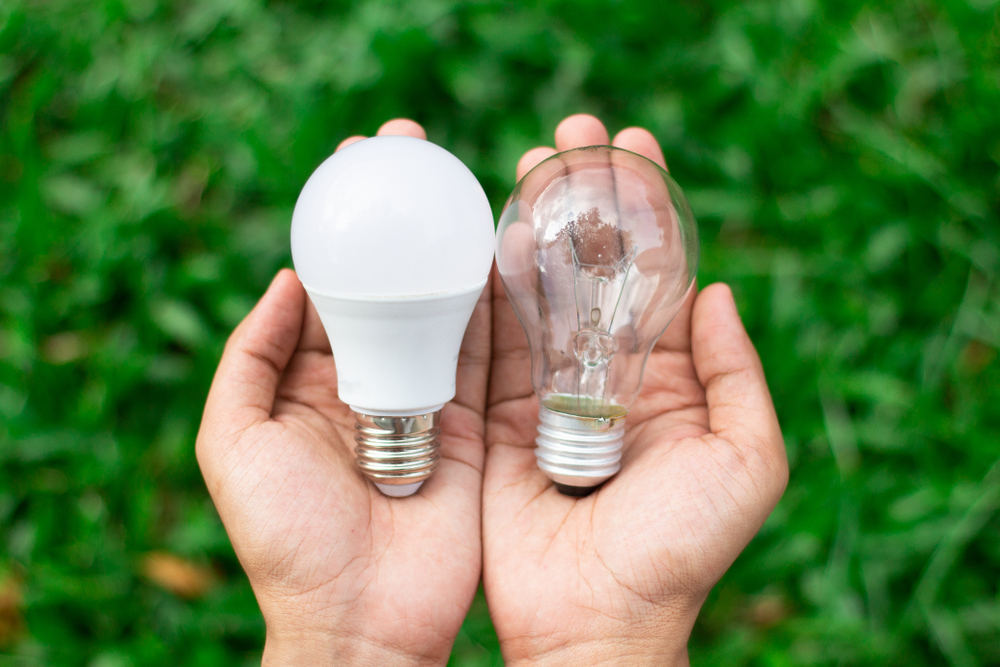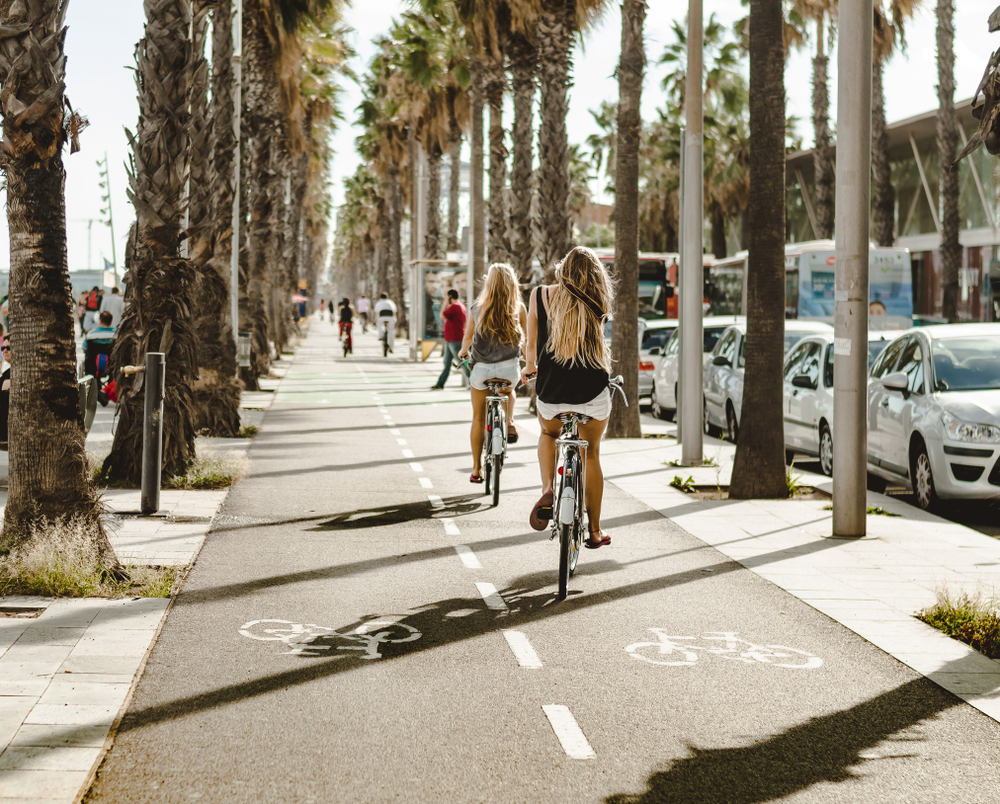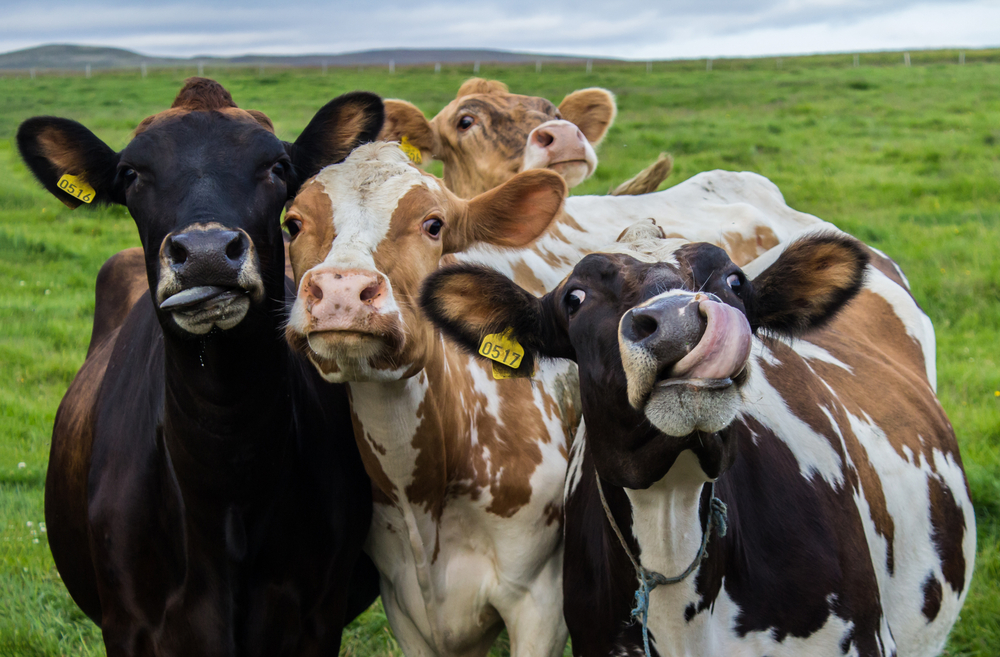As travelers, we’re natural environmentalists. After all, without a clean and healthy planet, there’d be no beautiful places to visit and explore! And while there are many things you can do to make your vacation more eco-friendly, the biggest changes we can make to help the planet are in our daily lives.
Many of our readers want to know what they can do to help protect the planet for future generations. So, here are some great and easy things you can do to help lower your daily carbon footprint.
Install a Smart Thermostat

Smart thermostat (Photo: jmac23)
Smart thermostats, like Google Nest and many models by Honeywell, allow you to adjust your temperature settings throughout the day. Say it’s the middle of summer and you work a 9 to 5. If you normally like your house or apartment set to 73 F, you could set your smart thermostat to stay at something like 76 F during the hours of 10 am – 4 pm, but drop back down to 73 F starting at 5 pm. That way, you’re not needlessly cooling the house when you’re gone. While three degrees doesn’t sound like a big change, just remember, that’s three degrees, for six hours, everyday… That adds up to a big energy reduction over time.
LED Lights


LED Lightbulb (Photo: Sanook.pic)
You’ve probably heard of LED lights at this point, they’ve been around for a while now. The problem is that many people still don’t use them because they don’t really know what they are. Traditional incandescent and CFL bulbs produce a lot of heat in order to create light (that’s why lightbulbs are so hot!) LED lights, on the other hand, produce light using electroluminescence through the use of tiny semiconductors. LED lights produce far less heat than traditional lightbulbs, thus requiring less energy. Plus, they last way longer. Some LEDs can even last a decade or more. So not only do they save energy, but they also save you money.
Install Weatherstripping


Weatherstripping a doorway (Photo: Africa Studio)
If you live in an older home or apartment (or if you have older windows) weatherstripping is a great option to help seal any drafts in your windows and doorways. It comes in plastic strips that you simply line your doors and windows with. Once installed, they’re not even noticeable. It’s a cheap way to save on heating and cooling costs…and the less heating and cooling, the less energy used, meaning the less coal and fossil fuel that needs to be used to produce energy.
Pedal Power!


Bike lanes in Barcelona (Photo: Anastasiia Tarasova)
Cars release tons of CO2 into the atmosphere. If you ever have the opportunity to skip a car ride, do it! In a lot of instances, commuting to work can be done through carpooling, mass transit, or even biking or walking.
But beyond commuting, any time you don’t drive is helpful. Is there a coffee shop that’s close to home? Why not bike there, or walk? With the money saved on gas and the calories burned from biking, you can treat yourself to a larger sized latte once you get there!
Reduce Meat Consumption


Cows in the pasture (Photo: Birkir Asgeirsson)
Reducing your meat consumption is a massive way to help the planet. Meat is energy-intensive. The sprawling fields of corn and soy you see lining America’s rural roads are largely used to feed livestock. Keeping animals alive, especially large ones like cows and pigs, requires immense amounts of calories. Because of how much water, land, fertilizer, and pesticides are required to grow all the feed, the meat system is inefficient and devastating.
You may have also heard the joke about cow farts…which, sadly, isn’t a joke. Because of the cow’s digestive process, they burp and fart methane. Their decomposing feces also releases methane. And while this isn’t the only source of methane that’s released into the atmosphere, it is by far one of the most controllable ones. Simply eat less beef!
There’s also lots of ways to reduce meat consumption in general. If you’re the kind of person who eats meat with every meal, try cutting it out for one meal a day. Or vow to cook one vegetarian meal each week. Or, simply try making meals with less meat. Instead of that giant steak, make a stir fry. Your meal will still have meat, but meat won’t be the entire meal. And if you’re really going for gold, try vegetarianism or veganism.
Recycle


Recycling (Photo: Rawpixel.com)
For most people, you may think this sounds obvious. However, there’s still a lot of people out there who don’t recycle. In fact, there’s still a lot of towns in America that don’t even offer recycling. I even personally know quite a few people in New York City who consider themselves liberal and woke, yet still forget to recycle half the time. Recycling isn’t something to be half-assed. It’s important for all of us to remember that recycling comes before the trash. Before throwing any container away, ask yourself first, can this be recycled?
And even for people out there who do recycle – Did you know recycling has changed a lot in the last few years? Many types of plastics and Styrofoam that used to be unrecyclable are now recyclable! Check with your local waste management company to find out about their new policies. Plus, many grocery stores now have large recycling drop-off bins, and even provide plastic bag recycling. Best Buy offers electronics and battery recycling, and Whole Foods has a whole plethora of recycling bins for even the most obscure plastics.
Compost


Composting (Photo: UliAb)
Compositing is the next step for anyone who has already mastered recycling, because composting is upcycling – meaning you’re turning something used (aka: food scraps) into something new (aka: fertile soil) without being processed. Compositing is the act of mixing food scraps in with dirt. Then, nature does its thing, and what was once eggshells and coffee grounds is now nutritious soil, perfect for your lawn, garden, and potted plants. Certain cities, like Cambridge, have even implemented citywide compost pickup. You can also make your own compost pile in your yard, or take food waste to designated drop-off points.
_________________________________________
You may also like
EARTH DAY: What the Coronavirus Can Teach Us About Saving the Planet


